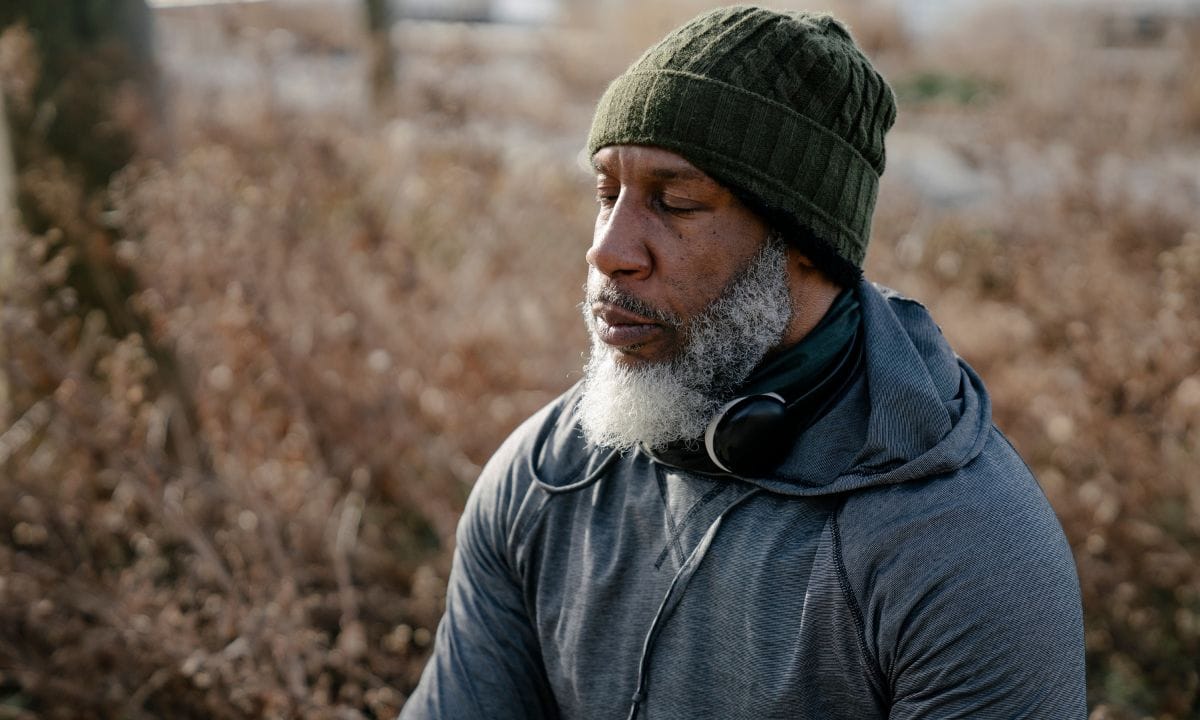Mental Health This Thanksgiving

As the aroma of roasting turkey and pumpkin pie fills the air, Thanksgiving approaches with its promise of family gatherings, festive feasts, and…stress? 😰 While this holiday is meant to be a time of gratitude and togetherness, for many, it can also bring a hefty serving of anxiety and emotional strain.
But what if this year could be different? 🍂 Imagine sailing through Thanksgiving with a sense of calm, joy, and genuine connection. It’s not just a pipe dream – it’s entirely possible when you prioritize your mental health. This holiday season, you have the power to transform your experience from one of stress to one of true thanksgiving.
In this post, we’ll explore seven key strategies to honor your mental health this Thanksgiving. From managing holiday stress to navigating tricky family dynamics, we’ll cover everything you need to create a more balanced and fulfilling holiday experience. So, grab a cozy drink, find a comfortable spot, and let’s dive into how you can make this Thanksgiving a celebration of both gratitude and self-care. 🦃🧡
Navigating lengthy content can be overwhelming. To streamline your reading experience, we’ve included a summary table of contents. Quickly find the sections most relevant to you.
Recognize and Manage Holiday Stress
As we approach Thanksgiving, it’s crucial to address the mental health challenges that often accompany this festive season. By recognizing and managing holiday stress, you can create a more enjoyable and balanced experience for yourself and your loved ones.
Identify Common Thanksgiving Stressors
Thanksgiving can bring a variety of stressors that impact our mental well-being. Here are some common sources of holiday stress:
- Family expectations and dynamics
- Financial pressure for gifts and meals
- Time constraints and overscheduling
- Perfectionism in meal preparation and home decoration
- Travel-related stress and logistics
Practice Stress-Reduction Techniques
Incorporating stress-reduction techniques can significantly improve your Thanksgiving experience. Try these effective methods:
- Deep breathing exercises
- Mindfulness meditation
- Regular physical activity
- Journaling or gratitude practices
- Progressive muscle relaxation
Set Realistic Expectations for the Holiday
Managing expectations is key to reducing stress during Thanksgiving. Consider the following strategies:
| Expectation | Realistic Approach |
| Perfect meal | Focus on enjoyment rather than perfection |
| Harmonious family gathering | Accept that some conflicts may arise |
| Flawless decorations | Embrace imperfections and prioritize comfort |
| Attending every event | Choose activities that truly matter to you |
By recognizing potential stressors, practicing stress-reduction techniques, and setting realistic expectations, you can navigate Thanksgiving with greater ease and mental clarity. Remember, the holiday is about gratitude and connection, not perfection. Now that we’ve addressed managing holiday stress, let’s explore how to establish healthy boundaries to further protect your mental health during this season.
Establish Healthy Boundaries
Now that we’ve explored ways to recognize and manage holiday stress, let’s focus on establishing healthy boundaries during Thanksgiving. Setting boundaries is crucial for maintaining your mental health during this festive season.
Learn to say “no” to overwhelming commitments
One of the most powerful tools in your mental health arsenal is the ability to say “no.” During Thanksgiving, you may feel pressured to attend every event or fulfill every request. However, it’s essential to prioritize your well-being:
- Assess your energy levels and commitments realistically
- Politely decline invitations or requests that feel overwhelming
- Offer alternative ways to connect or contribute if appropriate
Communicate your needs to family and friends
Open communication is key to maintaining healthy boundaries. Be honest with your loved ones about your needs and limitations:
| Communication Strategy | Example |
| Use “I” statements | “I feel overwhelmed when…” |
| Be specific | “I need 30 minutes of alone time each day” |
| Express appreciation | “I appreciate your understanding” |
Create a safe space for yourself during gatherings
Having a designated safe space can help you recharge and maintain your mental equilibrium:
- Identify a quiet area in the house or outdoors
- Let others know you may need occasional breaks
- Use this space for brief meditation, deep breathing, or simply to decompress
By establishing these healthy boundaries, you’ll be better equipped to enjoy the Thanksgiving festivities while honoring your mental health. Next, we’ll explore how to prioritize self-care during this busy time.
Prioritize Self-Care
As we navigate the hustle and bustle of Thanksgiving preparations, it’s crucial to remember that self-care isn’t selfish—it’s essential. By prioritizing your well-being, you’ll be better equipped to handle holiday stress and enjoy the festivities to their fullest.
A. Maintain regular sleep patterns
Consistency is key when it comes to sleep. Aim for 7-9 hours of sleep each night, even during the holiday season. Create a relaxing bedtime routine to signal your body it’s time to wind down.
B. Incorporate exercise into your holiday routine
Stay active to boost your mood and energy levels. Here’s a quick Thanksgiving-themed workout routine:
- Turkey Trot: 20-minute brisk walk or jog
- Pumpkin Pie Squats: 3 sets of 15 reps
- Cranberry Sauce Crunches: 3 sets of 20 reps
- Stuffing Stretches: 5 minutes of full-body stretching
C. Practice mindfulness and meditation
Take a few moments each day for mindfulness. Try this simple gratitude meditation:
- Find a quiet space
- Close your eyes and take deep breaths
- Reflect on three things you’re grateful for
- Visualize each one for 30 seconds
D. Indulge in relaxing activities you enjoy
Make time for activities that bring you joy and relaxation. Consider:
| Activity | Benefits |
| Reading a book | Reduces stress, improves focus |
| Taking a warm bath | Relaxes muscles, promotes better sleep |
| Listening to music | Elevates mood, decreases anxiety |
| Crafting or coloring | Enhances creativity, reduces stress |
Remember, self-care isn’t one-size-fits-all. Experiment with different activities to find what works best for you. By prioritizing your mental health, you’ll be better prepared to embrace the spirit of Thanksgiving and create meaningful connections with loved ones.
Navigate Family Dynamics
Family gatherings during Thanksgiving can be both joyful and challenging. Here’s how to navigate family dynamics while protecting your mental health:
A. Prepare coping strategies for difficult conversations
- Practice deep breathing exercises
- Use “I” statements to express feelings
- Redirect conversations to neutral topics
- Set internal time limits for challenging interactions
B. Plan exit strategies for overwhelming situations
| Strategy | Description |
| Bathroom break | Take a moment to regroup in private |
| Fresh air | Step outside for a brief walk |
| Helper role | Offer to help in the kitchen or with cleanup |
| Phone call | Excuse yourself to make a “important” call |
C. Focus on positive interactions and gratitude
- Seek out family members you enjoy spending time with
- Share fond memories or family stories
- Express appreciation for specific qualities in others
- Practice mindfulness to stay present in positive moments
By preparing for potential challenges and focusing on gratitude, you can navigate family dynamics more smoothly. Remember, it’s okay to prioritize your well-being. If tensions rise, take a step back and refocus on the positive aspects of the gathering. Next, we’ll explore how mindful eating and drinking can contribute to a more balanced Thanksgiving experience.
Mindful Eating and Drinking
Thanksgiving is often synonymous with overindulgence, but practicing mindful eating and drinking can significantly benefit your mental health during the holiday season. Here’s how to approach your Thanksgiving meal with mindfulness:
Practice portion control without guilt
Enjoy your favorite dishes in moderation by using smaller plates and taking time to savor each bite. Remember, it’s not about restriction but about finding balance. Consider the following portion control tips:
- Use the “plate method”: Fill half your plate with vegetables, a quarter with protein, and a quarter with starches
- Wait 20 minutes before going for seconds to allow your body to register fullness
- Focus on quality over quantity, choosing foods you truly enjoy
Be aware of emotional eating triggers
| Emotional Trigger | Mindful Alternative |
| Stress | Take deep breaths or step outside for fresh air |
| Loneliness | Engage in conversation with loved ones |
| Boredom | Offer to help with meal preparation or cleanup |
| Anxiety | Practice gratitude by sharing what you’re thankful for |
Limit alcohol consumption
While a glass of wine can be enjoyable, excessive alcohol can negatively impact your mood and sleep. Try these strategies:
- Alternate alcoholic drinks with water or non-alcoholic beverages
- Set a drink limit before the gathering
- Opt for lower-alcohol options or mocktails
Choose nourishing foods that support mental health
Incorporate foods rich in nutrients that boost mood and cognitive function:
- Turkey: Contains tryptophan, which helps produce serotonin
- Sweet potatoes: High in vitamin B6, crucial for brain health
- Leafy greens: Packed with folate, which may help alleviate depression
- Berries: Rich in antioxidants that support brain function
By approaching your Thanksgiving meal mindfully, you can enjoy the festivities while honoring your mental health. Now, let’s explore how seeking support when needed can further enhance your holiday experience.
Embrace New Traditions
As we explore ways to honor our mental health during Thanksgiving, let’s consider embracing new traditions that can enhance our well-being and bring fresh meaning to the holiday.
Create activities that promote mental well-being
Incorporating activities that support mental health can transform your Thanksgiving experience. Consider these options:
- Organize a family walk or hike before or after the meal
- Set up a quiet corner for meditation or relaxation
- Host a group yoga session to start the day
Incorporate gratitude practices into your celebration
Gratitude is at the heart of Thanksgiving and can significantly boost mental well-being. Try these practices:
- Pass around a gratitude journal during the meal
- Create a “thankful tree” where guests can hang notes of appreciation
- Share one thing you’re grateful for before the meal begins
Consider volunteering or giving back to the community
Helping others can provide a sense of purpose and improve mental health. Here are some ways to give back:
| Volunteering Option | Benefits |
| Serve at a local soup kitchen | Connect with community, feel useful |
| Organize a food drive | Foster teamwork, help those in need |
| Visit a nursing home | Spread joy, gain perspective |
By embracing these new traditions, you can create a Thanksgiving celebration that not only honors your mental health but also deepens connections with loved ones and the community. As we move forward, let’s explore how to seek support when needed during this holiday season.
Seek Support When Needed
During the holiday season, it’s crucial to remember that you’re not alone in your struggles. Seeking support when needed is a sign of strength, not weakness. Here are some ways to get the help you need:
Reach out to trusted friends or family members
Sometimes, simply talking to someone you trust can make a world of difference. Share your feelings and concerns with a close friend or family member who understands and supports you. They may offer valuable advice or just lend a listening ear.
Continue therapy or counseling sessions
If you’re already in therapy, don’t skip sessions during the holidays. Your therapist can provide strategies to cope with holiday-specific stressors. If you’re not in therapy, consider starting – many therapists offer virtual sessions for added convenience.
Utilize mental health hotlines if necessary
In times of crisis, don’t hesitate to use mental health hotlines. These services are available 24/7 and can provide immediate support and resources.
Join support groups for holiday-related stress
Support groups can be incredibly beneficial, offering a sense of community and shared experiences. Here’s a comparison of different types of support groups:
| Type of Group | Benefits | Considerations |
| In-person | Face-to-face interaction, immediate support | May require travel, set meeting times |
| Online | Accessible from anywhere, flexible timing | May lack personal connection |
| Specific to holidays | Focused on seasonal issues | May only be available during holiday season |
| General mental health | Year-round support | May not address specific holiday concerns |
Remember, seeking support is an essential part of managing your mental health during the holidays. Don’t hesitate to reach out – whether it’s to a friend, professional, or support group. Your mental wellbeing is worth prioritizing this Thanksgiving and beyond.
Conclusion
As we approach Thanksgiving, remember that your mental health deserves a seat at the table. By recognizing holiday stress, setting healthy boundaries, and prioritizing self-care, you can create a more enjoyable and balanced celebration. Navigating family dynamics with mindfulness, practicing conscious eating and drinking, and embracing new traditions can all contribute to a more positive experience.
This Thanksgiving, give yourself permission to prioritize your well-being. Whether it’s taking a quiet moment for yourself, reaching out for support when needed, or simply enjoying the company of loved ones, make choices that honor your mental health. By doing so, you’ll not only enhance your own holiday experience but also inspire those around you to do the same.
Remember, practicing gratitude should enhance your wellbeing, not add stress.
Contact us at let’s talk
Frequently Asked Questions
Find answers to frequently asked questions about our article “How to honor your mental health this Thanksgiving”


